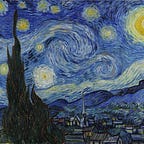The Gossip Theory
Gossip, an act we just can’t resist. An act that has become a significant part of our social lives. Healthy gossip can be fun, however, it can get toxic in no time. But who invented gossip? Why did people feel the need to surreptitiously talk behind the back? I don’t know! Read to find out!
“Hey! She said you’re a douche. Shh! Don’t tell anyone, okay? ”
Cmon guys, you do it, I do it, WE ALL do it: Gossiping and then claiming that we gossip less often than others. The truth is, we ENJOY talking about others in their absence; to gain popularity, to exhibit our knowledge about the ‘current affairs’, to start a casual conversation or simply because we want to relish the pleasure of making things up and entertain.
Recently, I started reading Yuval Noah Harari’s, Sapiens: A Brief History of Mankind. I was truly intrigued by his knowledge about history and archaeology and the way he explained each theory coherently. It was then, when ‘the gossip theory’ caught my eye. Gossip was a very familiar word but there were hundreds of questions in my mind; The book had most of the answers, but I was still curious and googled some more…
‘Minding our own business ’ has never been our strong suit, not even our ancestors’. 2.5 million years ago, man lived in groups, just like apes, chimps and other creatures. According to ‘the gossip theory’, the discovery of gossip was responsible for the origin of language. The archaic man(just like us) was more interested in matters such as who liked whom, who is smarter, who is the dumbest etc. instead of; which animal to hunt? or what did the tree/creature look like? He was rather more riveted in describing his fellow mates. Surprisingly though, this gossip turned out to be a powerful asset in community building. It was a healthy way to make bonds, co-operate with each other, develop social skills and share common interests. People preferred living in small groups as it was easier to look into each other’s affairs. Thus, gossips created myths; myths attracted like-minded people, giving rise to different communities.
This theory was formulated by anthropologist Robin Dunbar. I also read several chapters of the ebook of his famous title, ‘Grooming, Gossip and the Evolution of Language’. This book is definitely a page-turner. There are many theories out there that have archaeological backings, but this one was by far the most amusing to me.
After all, it’s just a theory, it also can be gossip!! (pun intended)
